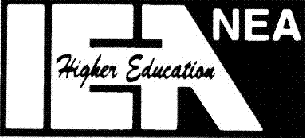Great News! The Illinois Employee Labor Relations Board (IELRB) has ruled on the petition submitted by CODAA. They have ruled that grant-funded part-time faculty are eligible CODAA Membership. Welcome grant-funded faculty!
Also, a reminder to all CODAA Members that CODAA dues deductions for this Semester for faculty teaching 1st 8-week, 12-week, 16-week and Fast Track courses will be made from the 3/11 and 3/25 paychecks. Those teaching only 2nd 8-week courses will have their deductions taken 4/22 and 5/6.
For more on the history of this change please see this post from last Fall. If you feel there is a problem with your dues deductions, you can use this form to contact Vicki Root-Wadja, Membership Chair, directly.
